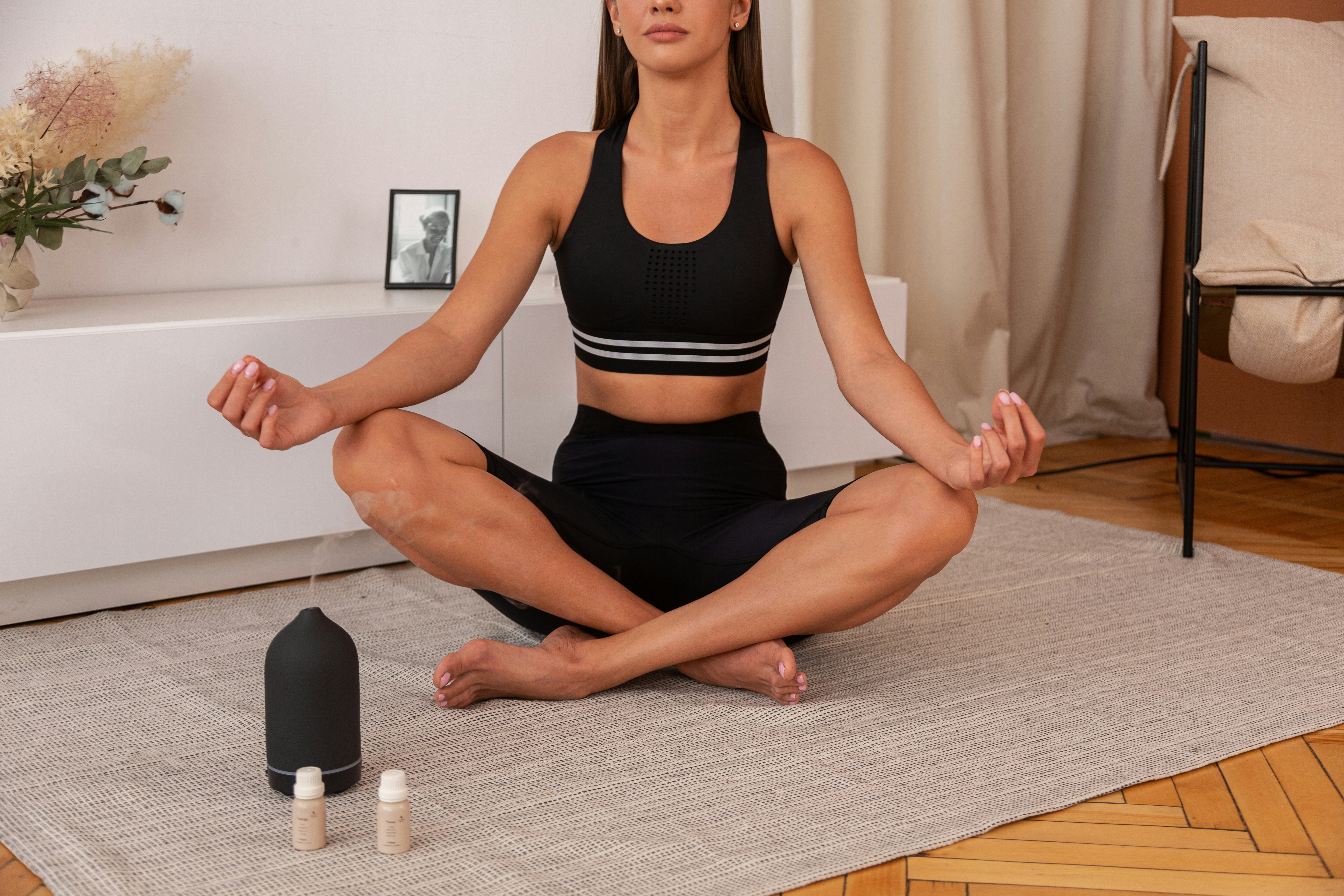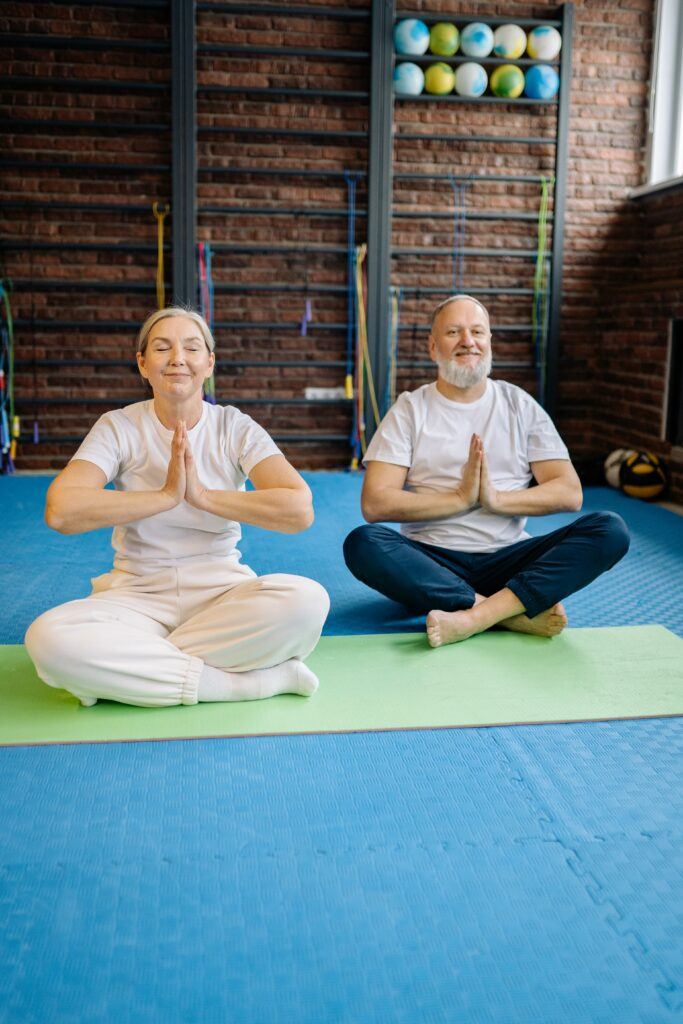Hello there! If you’re new to the world of meditation and looking to explore the benefits and techniques, you’ve come to the right place. In this article, we will guide you through the basics of meditation for beginners, covering everything from setting up a comfortable space to different meditation styles to help you find your inner peace and mindfulness. So, sit back, relax, and let’s dive into the wonderful world of meditation together! Have you ever felt overwhelmed by the chaos of everyday life? Do you find yourself constantly stressed and unable to focus? If so, meditation may be the solution you’ve been looking for. In this article, we will explore the world of meditation for beginners, explaining what meditation is, how to get started, and the benefits you can expect to experience. So sit back, relax, and let’s dive into the wonderful world of meditation.

What is Meditation?
Meditation is a practice that has been around for thousands of years and is used to train the mind, increase awareness, and achieve a state of mental clarity and emotional calmness. It involves focusing the mind on a particular object, thought, or activity to achieve a state of mindfulness.
How does Meditation Work?
When you meditate, you are essentially training your mind to be more focused and aware of the present moment. By quieting your thoughts and turning your attention inward, you can experience a sense of peace and relaxation that is often hard to find in our fast-paced world.
Getting Started with Meditation
If you’re new to meditation, getting started can feel a bit overwhelming. But don’t worry, we’re here to guide you through the basics and help you establish a meditation practice that works for you.
Setting the Scene
Before you begin meditating, it’s important to find a quiet and comfortable space where you won’t be disturbed. This could be a corner of your bedroom, a cozy spot in your living room, or even outside in nature. Make sure the space is free of distractions and clutter, and consider lighting a candle or playing soft music to set the mood.
Choosing a Time
The best time to meditate is whenever you can do it consistently. Some people prefer to meditate in the morning to start their day off on the right foot, while others find it more beneficial to meditate in the evening to unwind after a long day. Experiment with different times of day to see what works best for you.
Finding a Posture
There is no “right” way to sit when meditating, so find a posture that feels comfortable to you. You can sit cross-legged on a cushion, kneel on a meditation bench, or even lie down if that works best for you. The key is to keep your back straight and your body relaxed to allow for deep breathing.
Starting Small
When you’re just starting out, it’s important to set realistic expectations for your meditation practice. Start with just a few minutes each day and gradually increase the time as you become more comfortable. Remember, meditation is a skill that takes time to develop, so be patient with yourself.

Different Types of Meditation
There are many different types of meditation for beginners, each with its own unique benefits and techniques. Here are a few popular forms of meditation that you may want to explore:
Mindfulness Meditation
Mindfulness meditation involves paying attention to the present moment without judgment. It is about being fully aware of your thoughts, feelings, and sensations as they arise, and learning to observe them without reacting. This form of meditation is great for stress relief and increasing self-awareness.
Guided Meditation
Guided meditation is when you listen to a recording or a live instructor who guides you through the meditation session. This can be a helpful tool for beginners who may find it difficult to stay focused on their own. Guided meditations often include visualization exercises, breathing techniques, and body scans to help you relax and unwind.
Loving-Kindness Meditation
Loving-kindness meditation, also known as Metta meditation, focuses on cultivating feelings of love, compassion, and goodwill towards yourself and others. This practice involves repeating positive affirmations and wishes for happiness and peace. Loving-kindness meditation can help you develop a sense of empathy and connection with those around you.
Transcendental Meditation
Transcendental meditation is a technique that involves silently repeating a mantra to help quiet the mind and reach a state of deep relaxation. This practice is rooted in ancient Vedic traditions and is known for its stress-reducing and transformative benefits. Transcendental meditation is usually taught by a certified instructor and requires a specific mantra that is personalized for each individual.
The Benefits of Meditation
The benefits of meditation are vast and far-reaching, impacting every aspect of your life. Here are just a few of the many benefits you can expect to experience when you make meditation a regular part of your routine:
Stress Reduction
One of the most well-known benefits of meditation is its ability to reduce stress and promote relaxation. When you meditate, your body releases stress hormones like cortisol and adrenaline, which can help calm the nervous system and lower your heart rate and blood pressure. Over time, regular meditation practice can help you manage stress more effectively and improve your overall sense of well-being.
Improved Focus and Concentration
Meditation is like a workout for your brain, helping you improve your focus, attention, and memory. By training your mind to stay present and focused, you can increase your productivity and efficiency in both your personal and professional life. Studies have shown that regular meditation practice can even lead to changes in the structure and function of the brain, enhancing cognitive abilities and mental clarity.
Enhanced Emotional Well-Being
Meditation can have a profound impact on your emotional well-being by helping you cultivate a greater sense of self-awareness, compassion, and empathy. By learning to observe your thoughts and feelings without judgment, you can develop a more balanced and positive outlook on life. Meditation can also help you manage difficult emotions like anxiety, depression, and anger, giving you the tools to navigate challenging situations with grace and resilience.
Better Sleep
If you struggle with insomnia or poor sleep quality, meditation may be the solution you’ve been searching for. By calming your mind and relaxing your body, meditation can help you fall asleep faster, stay asleep longer, and wake up feeling more rested and rejuvenated. Incorporating a short meditation session before bed can signal to your brain that it’s time to wind down and prepare for sleep, making it easier to drift off into dreamland.

Common Challenges and How to Overcome Them
While meditation has many benefits, it’s important to acknowledge that it can also come with its fair share of challenges. Here are a few common obstacles that beginners often face and some tips for overcoming them:
Restlessness and Distractions
It’s natural for your mind to wander and for distractions to arise during meditation. Instead of getting frustrated or giving up, try acknowledging these thoughts and gently redirecting your attention back to your breath or the present moment. Remember, the goal of meditation is not to eliminate all distractions, but to learn how to accept and let them go.
Impatience and Expectations
Many beginners expect to experience immediate results from meditation, such as feeling completely relaxed or achieving a state of enlightenment. It’s important to remember that meditation is a practice that takes time and patience to develop. Instead of focusing on the outcome, try to enjoy the process and be open to whatever arises during your meditation sessions.
Discomfort and Physical Pain
Sitting still for an extended period of time can be challenging, especially if you’re not used to it. If you experience discomfort or physical pain during meditation, try adjusting your posture to find a position that feels more comfortable. You can also experiment with using cushions, blankets, or chairs for support. Remember, it’s okay to move and shift during meditation to alleviate any discomfort.
Overcoming Resistance
Sometimes the hardest part of meditation is simply showing up and making time for it in your busy schedule. If you find yourself resisting your meditation practice, try setting small, achievable goals for yourself and gradually increasing the amount of time you spend meditating. Remember, even just a few minutes of meditation can have a positive impact on your mental and emotional well-being.
Cultivating a Regular Meditation Practice
Now that you understand the basics of meditation and how to overcome common challenges, it’s time to establish a regular meditation practice that works for you. Here are a few tips to help you stay committed and motivated on your meditation journey:
Set Realistic Goals
Instead of aiming for perfection or meditating for hours on end, focus on setting realistic goals that align with your lifestyle and schedule. Start with just a few minutes each day and gradually increase the time as you become more comfortable. Remember, consistency is key when it comes to meditation.
Create a Routine
To make meditation a habit, try to incorporate it into your daily routine at the same time and in the same place. Whether it’s first thing in the morning, during your lunch break, or before bed, find a time that works best for you and stick to it. By creating a routine, you can signal to your brain that it’s time to meditate and make it a natural part of your day.
Stay Accountable
If you’re having trouble staying motivated or sticking to your meditation practice, consider enlisting the support of a friend, family member, or meditation group. Sharing your goals and progress with others can help keep you accountable and inspired to continue meditating, even when it feels challenging.
Be Gentle with Yourself
Remember that meditation is a journey, not a destination, and that it’s okay to have ups and downs along the way. Be kind and compassionate towards yourself, especially when you’re feeling frustrated or resistant to meditate. Approach your practice with an open mind and a sense of curiosity, and be willing to explore different techniques and styles to find what works best for you.
Conclusion
Congratulations, you’ve made it to the end of our meditation for beginners journey! We hope this article has inspired you to explore the wonderful benefits of meditation and helped you establish a regular practice that brings peace, clarity, and joy to your life. Remember, meditation is a personal and transformative practice that can be tailored to fit your unique needs and preferences. So take a deep breath, center yourself, and embark on this beautiful journey of self-discovery and inner peace. Happy meditating!






